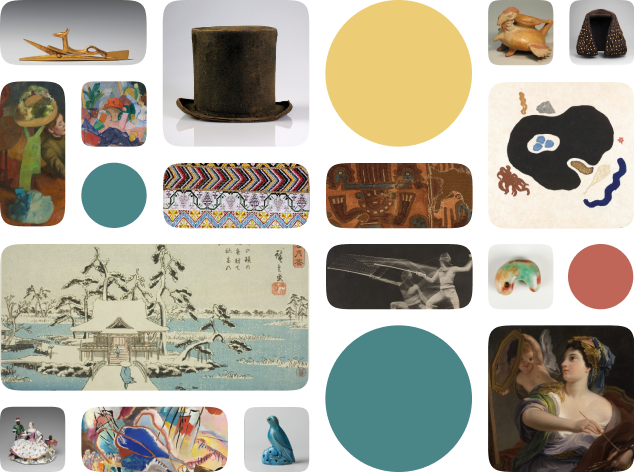Funerary Portrait of a Young Girl
Creator Name
Cultural Context
Date
Source
About the Work
This funerary portrait was attached to the mummy of a young female elite from the Greco-Egyptian community in Roman Imperial Egypt. This young woman likely had her portrait painted upon her death near what is now Faiyum, Egypt.
So-called Fayum portraits combined Egyptian mummification and the Roman practice of funerary masks. They represented syncretic beliefs about death. Ancient Egyptians depicted the soul, the akh, as a being of light. They believed that the soul lived eternally when the body was preserved. To enable the person to eat and drink in the afterlife, they ceremonially "opened the mouths" of the recently dead while entombing them.
This young woman’s lips are gilded, or covered in a thin layer of gold, unusual for a Fayum portrait. The gilding may represent the opening of the mouth and the light of the eternal akh. Learn more about the use of gilding in Fayum portraits.
Work details
Title
Creator
Worktype
Cultural Context
Material
Dimensions
Technique
Language
Date
Provenance
Style Period
Rights
Inscription
Location
Source
Subjects
Topic
Related Content
All Works in Curationist’s archives can be reproduced and used freely. How to attribute this Work:
Help us improve this content!
Save this work.
